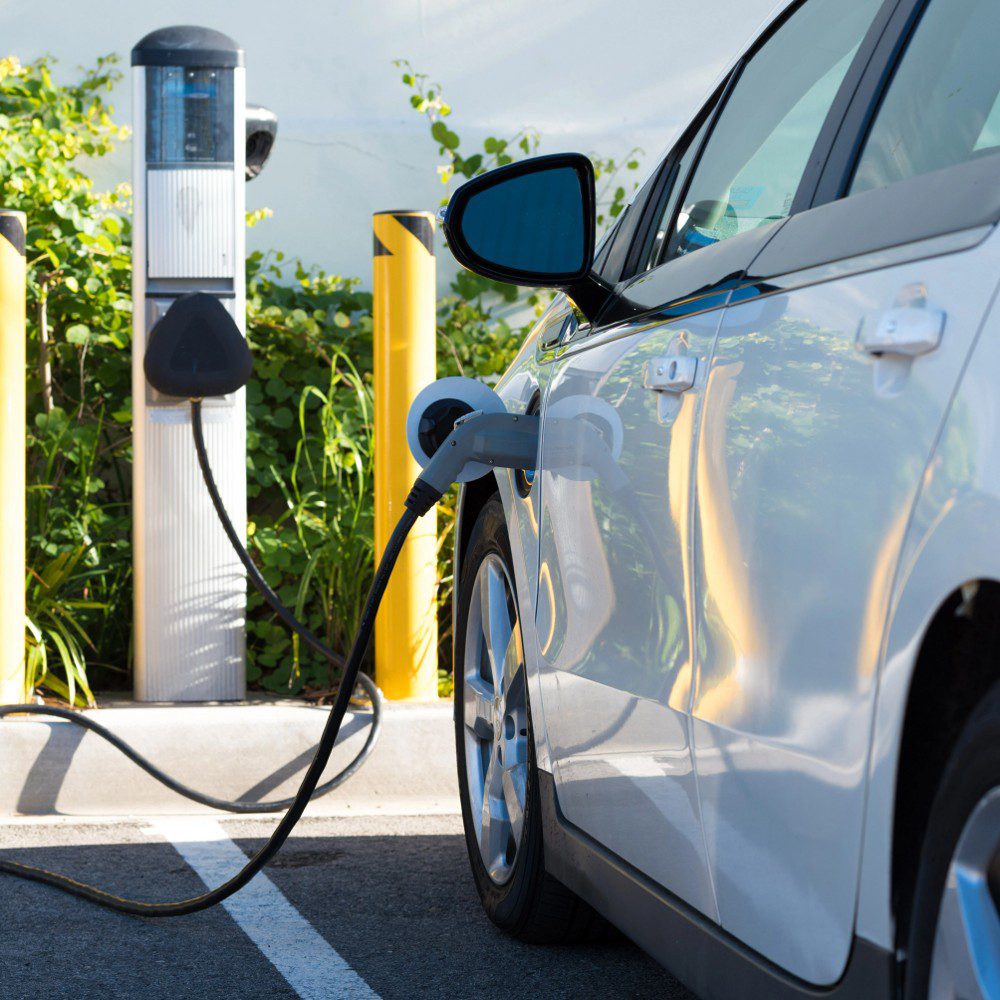A guide to electric car tax

Are you eyeing up an electric vehicle (EV) and have questions about electric car tax? Do electric cars pay road tax in the UK? What about hybrid cars? We’ve got the answers right here.
Car tax — also referred to as “road tax”, “Vehicle Excise Duty (VED)”, or “the road fund licence” — is paid to the UK government to help maintain and improve the country’s roads and motorways. Along with car insurance, you need to register for and pay road tax every year to legally drive on public roads.
The amount of VED you pay each year can range from £0 to £2,605 and is calculated based on the carbon dioxide (CO2) tailpipe emissions for all vehicles registered since March 2001. (For cars registered before this date, road tax is calculated based on engine size.)
Here, we explain the current and future costs of electric car road tax, how hybrid cars are affected, and take a look at some of the other costs (and savings) associated with EVs.
Do you have to pay car tax on electric cars?
No. The good news is that you don’t currently have to pay road tax on electric cars.
While all cars need to be registered for road tax, many enjoy road tax exemption — including zero-emission vehicles. However, this will change in April 2025, when zero-emission cars first registered between 1 April 2017 and 31 March 2025 will be required to pay the standard rate of VED.
How much will electric car tax be from April 2025?
The road tax exemption on electric cars will end in April 2025, meaning that zero-emission cars first registered on or after 1 April 2017 will have to pay the lowest first year rate of road tax (currently £10). From the second year onwards, zero-emission cars will move to the standard annual rate (currently £180 a year).
Do you pay road tax on hybrid electric cars?
Yes, but the amount you pay can vary. Plug-in hybrid vehicles come in all shapes and sizes. Some use petrol, some use diesel, and they’re all partially powered by electricity.
While this means hybrids emit less CO2 tailpipe emissions than conventional vehicles, it doesn’t mean that number’s always zero. And because road tax is based on how many grams of CO2 a car emits per kilometre driven, most hybrid cars aren’t exempt.
So, for example, if your hybrid car emits 51 to 75g/km of CO2, you’ll have to pay the first year rate of road tax (currently £20 for hybrid vehicles emitting those levels). From the second year onwards, your hybrid car would move to the standard annual rate for “Alternative fuel vehicles” (including hybrids, bioethanol and liquid petroleum gas), which is currently £170.
You can view the most up-to-date vehicle tax rates for hybrids on the gov.uk website.
How do I know if my electric car is taxed?
You can check if your EV has been taxed using this gov.uk checker tool. If you’ve only recently taxed your car, bear in mind that it can take up to five working days for the records to update.
Wondering how to tax your electric car? Read our car tax guide.
What else do electric car drivers have to pay?
In addition to the looming change to road tax, there are some additional annual payments that EV owners need to take into consideration, including:
Charging costs: Whether it’s at a charging point or at home, you’ll probably need to pay for the electricity you use to charge your vehicle (note: there are some free EV charging points across the UK). Costs will depend on your vehicle type, local electricity rates, and how much you drive.
Maintenance: Electric motors generally require less maintenance than conventional petrol and diesel vehicles. That said, EVs will need to be properly maintained to keep them running in tip-top condition. Depending on the make and model of your vehicle, you may also require specialist parts if you need to repair or replace something, which can make things more expensive.
Car insurance: Electric cars, like any other motor vehicle, need insurance to legally drive on public roads. Costs can vary depending on your driving history, the make and model of the EV, and the insurance provider. Here at Howden, we offer electric car insurance, which includes cover for charging cables and breakdown assistance. (We’ll also take you to the nearest charge point or your home charge point, whichever is closer.)
What are the tax benefits of an electric car?
Driving an EV right now means you’re exempt from paying road tax — but that’s not the only tax benefit.
Currently, if you have a car with a “list price” (the published price before any discounts) of more than £40,000, you need to pay an extra £390 levy on top of your road tax. However, zero-emission vehicles are exempt from this charge and will continue to be exempt after April 2025.
If you drive a company car, which is classed as a “benefit in kind (BIK)” by HMRC, electric vehicles are much better value when compared to petrol, diesel, or hybrid vehicles.
All company cars are assigned a “taxable value”, which is a percentage of the list price, ranging from 2% to 37%. Generally speaking, the higher the CO2 emissions, the higher the taxable value. These bands have been frozen until April 2025, meaning electric vehicles are only being taxed 2% based on the list price.
It’s also worth noting that government incentives regarding EVs can be introduced, changed, or withdrawn at any time. It’s a good idea to stay up-to-date with the latest regulations and financial benefits to make sure you’re not missing out as an electric vehicle owner.
Do electric vehicles need to have an MOT?
Yes. All vehicles, including electric and hybrid cars, must have an MOT every year once they’re over three years old to ensure they’re safe to drive on UK roads.
The MOT test for electric cars is similar to that for petrol and diesel vehicles, with a few key differences:
Electric cars don’t have internal combustion engines, meaning they don’t have exhaust systems that have to be checked. So, no need for an emissions test.
However, an electric car’s battery takes on greater significance as the main power source. The test will check if it can store enough power to start the vehicle and run the headlamps.
An electric car MOT will also look at the charging equipment, ensuring that the charging port is clear of damage or leaks that could cause a fault or failure.
Read more: When do I need an MOT?
What else are EV owners exempt from paying?
Aside from not having to pay for petrol or diesel, battery electric or hydrogen fuel cell vehicles are currently exempt from paying the central London Congestion Charge.
However, this exemption is set to end on 25 December 2025. From this date, all vehicle owners, unless in receipt of another discount or exemption, will need to pay to enter the Congestion Charge zone during charging hours.
Electric vehicles are also exempt from penalties and charges when entering low-emission zones (LEZ) in London and in locations across the UK.
In summary: How much is the tax on an electric car?
To recap, there’s no EV road tax in the UK. Electric vehicles are exempt from paying VED until April 2025, at which point zero-emission cars first registered on or after 1 April 2017 will have to pay the lowest first year rate of road tax (currently £10).
From the second year onwards, zero-emission cars will move to the standard annual rate, which is currently £180 a year.
Also read:


